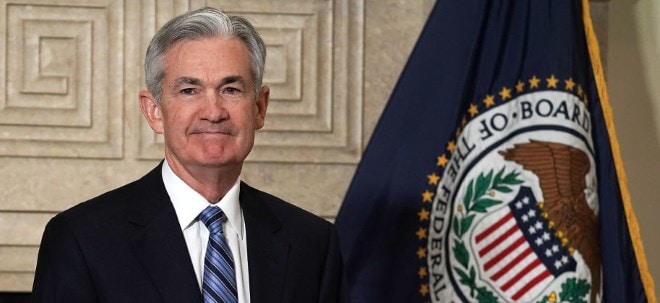kommentar:
Interessant auch der Ansatz, das die Steuerrückerstattungen auch nur erfolgen wenn die Stammaktien erhalten bleiben.
sehr gut zusammengefasst
Seattle Guy, I will try to answer your questions. Remember that they are only my opinions.
Here is the scoop (as I see it):
It appears that WAMU got siezed by the FDIC when it was actually solvent.
There are indications that it was a setup job pulled off just before the TARP bill passed because if WAMU survived this crisis, there might not be another good chance to take them over for 20 years.
This appears to have been facilitated by refusal to add WAMU to the list of stocks that could not be shorted.
Paulson has been quoted as having made veiled threats that WAMU should sell to JPM or 'things could go a lot worse for you.'
WAMU kept pumping money into the bank to keep their liquidity ratios above the danger zone to prevent seizure, were never told that they were coming up short, and there are indications that they had much more money that could have been put into the bank if it were needed for liquidity.
Apparently for the first time in the history of the FDIC a bank was seized on a Thursday instead of Friday (which makes it easier to have things organized by the next business day.
There were apparent irregularities in the 'auction' that started BEFORE the bank was seized involving bids being 'thrown out' for 'nonconformance' issues.
FDIC made it clear that they would accept a bid of ZERO as a legitimate bid before the bank was even siezed.
FDIC agreed to indemnify JPM. This may be standard in these transactions... I don't know. If it is not, I take it to mean that JPM knew they were committing a theft.
There were irregularites that some believe indicate insider trading and violation of non-disclosure agreements before the siezure.
When I grew up, we had a saying... where there is smoke, there is fire. Even if not all of the allegations are true, something is not right.
JPM has even agreed that WAMU was solvent when it was siezed.
I think JPM has coveted the WAMU operation for a long time. They realized that trouble was looming ahead and figured, why buy it for a reasonable price when it looks like it will be for sale cheaper in a very short while.
Then the credit default fiasco came to a head and (I suspect) that the people on the inside realized (or KNEW) that the TARP agreement would preclude acquisitions and so they figured out a way to get it done immediately.
If this is so, then criminal activity has occurred.
Many of us believe that while the wheels of justice turn slow, they do turn true.
I spoke to someone who used to be a bank examiner and was told that the FDIC 'kind of has their own court system' and it was hard to win against them in court. Every time that the court does something that helps keep this in the court in Delaware, it is a small victory. Thus the runup when the word FRIVILOUS was used. If their arguments are FRIVILOUS then they must not have anything better to say.
I believe that ultimately, WAMU will be compensated at some value higher than the offer they turned down before the TARP mess ($8.00)
I believe that the maximum penalty (triple damages) will not happen. I will be mildly and happily surprised if double damages are awarded.
Every day that this does not die on the vine, is a small victory.
Remember this is a HIGH RISK HIGH REWARD PLAY. As much as I hate to say it, at any time events could occur that would cuase common stock to evaporate. There are reasons why we think it won't such as the possibility that the tax credits for the Net Operating Loss will not be applicable if the common stock is cancelled.
The expectation that JPM will settle is based on the idea that if the lid is opened on the SMOKE that the FIRE will burn JPM and its officers to the ground. Realize that if they are found guilty of some of the suspected activities, the pre-crash stockholders will then have grounds for lawsuits. To me this is the most compelling reason to settle.
If it is so obvious that they should settle, the question becomes 'why haven't they'?
Apparently, there were restrictions on the activities of a bank that had outstanding TARP warrants. These restrictions precluded acquisitions and settling lawsuits. Since JPM has now repaid their TARP warrants, those restrictions do not apply. I personally think that there are negotiations going on right now. No one is in a hurry to settle this except us stockholders.
Yes they will have to pay off debts, but that is not as bad as it sounds. There would still be profits available for those who purchased common stocks after the collapse. I think the minimum (if a settlement should occur) would be $5 per share and the maximum (if a jury trial found in WAMU's favor) of around $35.
I, personally am hoping for somthing in the low $20s.
Now, how long will it take... This is the big question. I find myself conflicted between wanting the thing to end right now and for it to drag on for a year or more, allowing me to buy more stock as money becomes available and pay less tax due to the difference when you have held a stock for over a year.
I apologize for rambling, but I didn't have time tonight to write an organized essay. I hope this helps.
See wamuqd.com, wamustory.com, and other websites
for more details.
These are my opinions. I have no knowledge that makes me special other than I can read a bar chart. This bar chart is behaving like a stock that wants to go up. Of course, they always do just before they don't.
I am not a broker and I am not giving advice.
http://investorshub.advfn.com/boards/read_msg.aspx?message_id=42680954 -----------
An der Börse sind 2 mal 2 niemals 4, sondern 5 minus 1.
Man muß nur die Nerven haben, das minus 1 auszuhalten. |


 Thread abonnieren
Thread abonnieren

